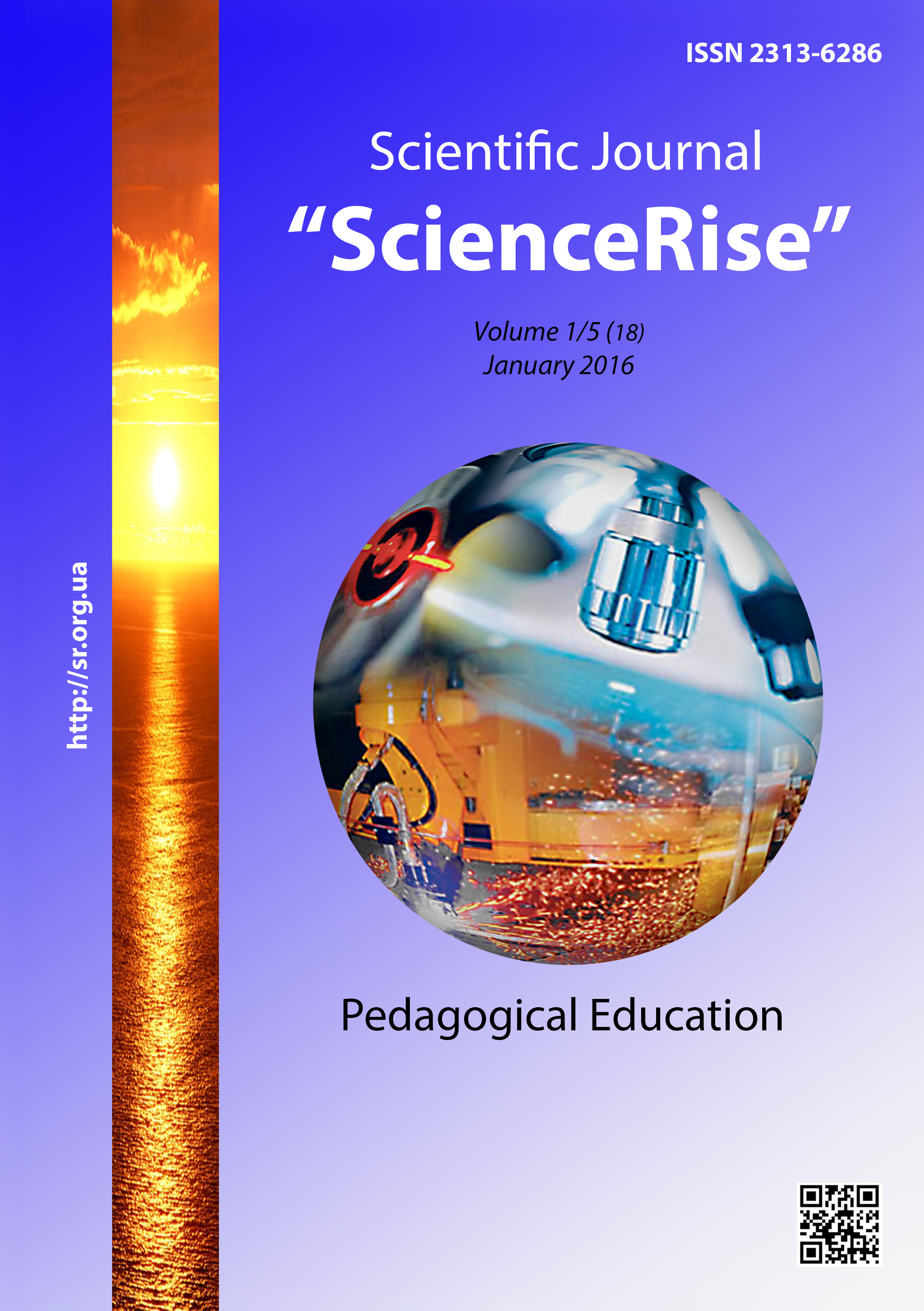ICT – education without borders. Education modernization in the conditions of informatization of society
DOI:
https://doi.org/10.15587/2313-8416.2016.59143Keywords:
informatization of education, information computer technology, SMART-technologies, information and communication technologiesAbstract
The processes of education modernization are considered using new information technologies in education that have occurred as a result of the information society and education in general. The concept of "information society" and "information space" is revealed. The methods of use of multimedia technology in education on the basis of SMART-technologies are considered as promotion of creative activity and self-participants of the educational process (including gifted students). Gradual training for classes in elementary school using information and communication technologies is proposed
References
Fedorchuk, I. I., Shylov, A. V., Franchuk, L. S., Nalyvajko, S. V.; Zjazjun I. A. (Ed.) (2006). Stvorennja elektronnogo posibnyka. Issue 11. Kyiv, Vinnitsa: DOV Vinnitsa, 399–403.
Bykov, O. (2008). Novitni informacijni tehnologii' v navchal'no-vyhovnomu procesi. Shkola, 7, 75.
Kitajeva, M. (2011). Vykorystannja mul'tymedijnyh tehnologij. Pochatkova osvita, 38. – S. 7–9.
Marahovs'kyj, L. (2001). Indyvidual'ni tehnologii' jak psyhologo-pedagogichna problema. Shkil'nyj svit, 23, 4.
Pidkassistyj, P. I., Tishhenko, O. B. (2000). Komp'juternye tehnologii v sisteme distancionnogo obuchenija. Pedagogika, 5, 7–13.
Ajzenh, G. Ju. (1972). Prover'te svoi sposobnosti. Moscow, 177.
Vorob'eva, V. V. (2001). K voprosu ob issledovanii komp’juternyh programm v uchebno-vospitatel'nom processe nachal'noj shkoly. Novye podhody k ponimaniju sushhnosti razvivajushhego nachal'nogo obuchenija. Pskov: PGPI.
Dvoreckaja, A. V. (2004). Osnovnye tipy komp’juternyh sredstv obuchenija. Pedagogicheskaja tehnologija, 2, 38–40.
Bukach, A. (2007). Informacijni ta komunikacijni tehnologii' v osvitni systemi mista. Shkola, 12, 8–16.
Novikova, A. A. (2000). Mediaobrozovanie v SShA: problemy i tendencii. Pedagogika, 3, 68–75.
Tkachuk, V. (2004). Komp’juteryzacija shkil'noi' osvity: perevagy ta sfery ryzyku. Vyshha osvita Ukrai'ny, 4, 77–81.
Zhaldak, M. I., Rams'kyj, Ju. C. (1997). Derzhavnyj standart zagal'noi' seredn'oi' osvity v Ukrai'ni. Osvitnja galuz' "Informatyka". Kyiv: Geneza, 14–15.
Zhaldak, M. I. (1998). Jakym buty shkil'nomu kursu „Osnovy informatyky”. Komp’juter u shkoli ta sim’i', 1, 3–8.
Programma po informatiki dlja I-IV klassov (2003). Informatika i obrazovanie, 6, 97–104.
Beshenkov, S. A. (1997). Gumanitarnaja informatika v nachal'nom obuchenii. Informatika i obrazovanie, 4, 62–64.
Ryvkind, F. M. (1998). Osnovy komp’juternoi' gramotnosti. Kyiv: Grono, 16–22.
Mel'nyk, Ju. (2002). Formuvannja intelektual'nogo komponenta kul'tury rozumovoi' praci molodshyh shkoljariv zasobamy informacijnyh tehnologij. Ternopol, 50–55.
Vituhovskaja, A. A. (2001). Komp’juternaja podderzhka uchebnyh kursov dlja nachal'noj shkoly. Informatika v nachal'nom obrazovanie: Informatika i obrazovanie, 1.
Geval, M. D. (2000). Zagal'ni pryncypy vykorystannja komp’jutera na urokah riznyh typiv. Komp’juter u shkoli ta sim’i', 3, 34–34.
Pahomov, Z. P. (1998). Vykorystannja komp’jutera v navchanni uchniv pochatkovyh klasiv. Shkil'na osvita, 4, 28–29.
Pidlasyj, I. P. (1989). Jak pidgotuvaty efektyvnyj urok. Kyiv: Radjans'ka shkol, 204.
Downloads
Published
Issue
Section
License
Copyright (c) 2016 Вікторія Миколаївна Шкляр

This work is licensed under a Creative Commons Attribution 4.0 International License.
Our journal abides by the Creative Commons CC BY copyright rights and permissions for open access journals.
Authors, who are published in this journal, agree to the following conditions:
1. The authors reserve the right to authorship of the work and pass the first publication right of this work to the journal under the terms of a Creative Commons CC BY, which allows others to freely distribute the published research with the obligatory reference to the authors of the original work and the first publication of the work in this journal.
2. The authors have the right to conclude separate supplement agreements that relate to non-exclusive work distribution in the form in which it has been published by the journal (for example, to upload the work to the online storage of the journal or publish it as part of a monograph), provided that the reference to the first publication of the work in this journal is included.

